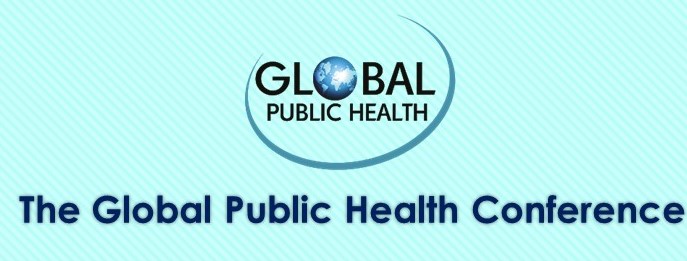SOCIAL CONNECTION DURING COVID-19: THE EXPERIENCES OF FIRST- AND CONTINUING-GENERATION UNIVERSITY STUDENTS
DOI:
https://doi.org/10.17501/26138417.2022.5108Keywords:
COVID-19, student outcomes, social connection, relationships, pandemicAbstract
The COVID-19 pandemic and associated mitigation efforts (e.g., remote instruction) have significantly altered the higher education landscape. Since the onset of the pandemic, undergraduate enrollment has declined, particularly at public four-year universities and among first-generation students. Consequently, it is essential for researchers, administrators, counselors, faculty, and other higher education stakeholders to understand the impact of the pandemic on students (particularly first-generation students in the public university sector), as well as what resources are needed to address this impact. We explored social support, interpersonal connection, and relationship loss among university students during the first 12 months of the COVID-19 pandemic, and whether those experiences differed as a function of generation status. Data were collected as part of the COVID-19 University Research on Education and Sustainability (CURES) Project, a multi-site study of adjustment and resilience among college students during the COVID-19 pandemic. Undergraduate students (N = 395) completed the Three-Item Loneliness Scale and the NIH Adult Social Relationships Scale and reported whether they had experienced the ending of any close relationship(s) during the pandemic. Only half of students reported access to emotional and instrumental social supports; two-thirds reported feeling isolated, disconnected, and left out; and about half reported having lost a close relationship. First- and continuing-generation students did not differ on these variables. Access to a supportive social network and involvement in enduring, intimate relationships are both strongly related to optimal health and well-being; thus, our results are concerning. There may be creative ways, however, for institutional stakeholders to build feelings of community and social connection among their student population.
Downloads
References
Baumeister, R. F., Brewer, L. E., Tice, D. M., & Twenge, J. M. (2007). Thwarting the need to belong: Understanding the interpersonal and inner effects of social exclusion. Social and Personality Psychology Compass, 1, 506–520.
Baumeister, R. F., & Leary, M. R. (1995). The need to belong: Desire for interpersonal attachments as a fundamental human motivation. Psychological Bulletin, 117, 497–529.
Berscheid, E., & Regan, P. (2005). The psychology of interpersonal relationships. Mahwah, NJ: Prentice-Hall.
Brewer, M. B. (2004). Taking the social origins of human nature seriously: Toward a more imperialist social psychology. Personality and Social Psychology Review, 8, 107–113.
Caporael, L. R., & Brewer, M. B. (1995). Hierarchical evolutionary theory: There is an alternative, and it’s not creationism. Psychological Inquiry, 6, 31–34.
Cosmides, L., & Tooby, J. (1997). Evolutionary psychology: A primer. http://www.psych.ucsb.edu/research/cep/primer.html
Cyranowski, J. M., Zill, N., Bode, R., Butt, Z., Kelly, M. A. R., Pilkonis, P. A. & Cella, D. (2013). Assessing social support, companionship, and distress: National Institute of Health (NIH) Toolbox Adult Social Relationship Scales. Health Psychology, 32, 293-301. https://doi.org/10.1037/a0028586
Hanson, M. (2021, August 7). College enrollment & student demographic statistics. EducationData.org. https://educationdata.org/college-enrollment-statistics
Hess, A. J. (2020, March 26). How coronavirus dramatically changed college for over 15 million students. CNBC. https://www.cnbc.com/2020/03/26/how-coronavirus-changed-college-for-over-14-million-students.html
Hughes, M. E., Waite L. J., Hawkley, L. C., & Cacioppo, J. T. (2004). A short scale for measuring loneliness in large surveys: Results from two population-based studies. Research on Aging, 26, 655-672. https://doi.org/10.1177/0164027504268574
Kowalsky, R. J., Farney, T. M., Kline, C. E., Hinojosa, J. N., & Creasy, S. A. (2021). The impact of the COVID-19 pandemic on lifestyle behaviors in U.S. college students. Journal of American College Health. https://doi.org/10.1080/07448481.2021.1923505
Leary, M. R., & Cox, C. B. (2008). Belongingness motivation: A mainspring of social action. In J. Y. Shah & W. L. Gardner (Eds.), Handbook of motivation science (pp. 27–40). New York: Guilford Press.
Lukács, A. (2021). Mental well-being of university students in social isolation. European Journal of Health Psychology, 28, 22-29.
Madrigal, L., & Blevins, A. (2021). “I hate it, it’s ruining my life:” College students’ early academic year experiences during the COVID-19 pandemic. Traumatology. Advance online publication. https://doi.org/10.1037/trm0000336
O’Connor, D. B., Aggleton, J. P., Chakrabarti, B., Cooper, C. L., Creswell, C., Dunsmuir, S. & Armitage, C. J. (2020). Research priorities for the COVID-19 pandemic and beyond: A call to action for psychological science. British Journal of Psychology, 111, 603-629.
Press Release (2020, March 10). California State University update on Coronavirus-related actions. CSU System: News.https://www.calstate.edu/csu-system/news/Pages/California-State-University-Update-on-Coronavirus-Related-Actions.aspx
Regan, P. (2011). Close relationships. New York, NY: Taylor & Francis/Routledge.
Smalley, A. (2021, March 22). Higher education responses to coronavirus (COVID-19). National Conference of State Legislatures. https://www.ncsl.org/research/education/higher-education-responses-to-coronavirus-covid-19.aspx
Tasso, A. T., Sahin, N. H., & San Roman, G. J. (2021). COVID-19 disruption on college students: Academic and socioemotional implications. Psychological Trauma: Theory, Research, Practice, and Policy, 13, 9-15.
Van Orden, K. A., Bower, E., Lutz, J., Silva, C., Gallegos, A. M., Podgorski, C. A. & Conwell, Y. (2021). Strategies to promote social connections among older adults during “social distancing” restrictions. American Journal of Geriatric Psychiatry, 29, 816-827.
Downloads
Published
How to Cite
Issue
Section
License
Copyright (c) 2022 Pamela C. Regan, PhD, Isabel Osorio-Flores, BA, Lauren Rostholder, BA, Kaveri Subrahmanyam, PhD , Minas Michikyan, PhD

This work is licensed under a Creative Commons Attribution 4.0 International License.







